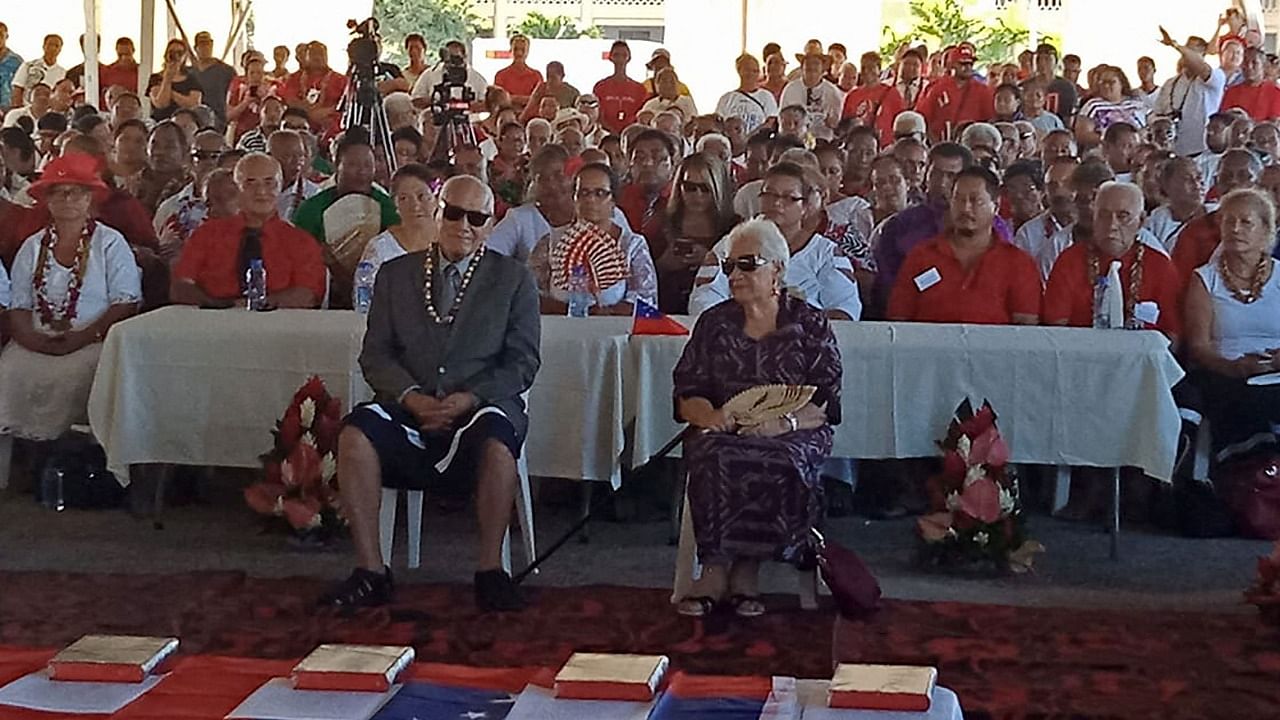
Defying election results and court rulings, Samoa's veteran leader Tuilaepa Sailele Malielegaoi is determined to cling to power, convinced only divine intervention can end his 22-year rule of the Pacific island nation.
Malielegaoi is not accustomed to losing -- until recently the 76-year-old's authority was virtually absolute in a devoutly Christian nation of 220,000 where respect for one's elders is deeply ingrained.
A trained economist, Malielegaoi has cast a long shadow over public life since he was elected to Samoa's parliament in 1980.
As well as being prime minister, he appointed himself foreign minister and chairman of the Samoa Rugby Union -- a high profile role in the rugby-mad nation.
But his grip on power is now being challenged by former ally Fiame Naomi Mata'afa, who won a shock majority in a general election on April 9, opening the door to her becoming Samoa's first woman prime minister.
Far from conceding and stepping down, Malielegaoi precipitated a constitutional crisis that has international observers warning Samoa's young democracy could falter.
He first tried to tilt parliamentary numbers in his favour, saying the election did not return enough women to parliament and had violated gender quota rules.
He then tried to force through an election rerun.
When the courts rejected both moves, Malielegaoi then accused them of bias towards his rival.
His allies on Monday physically locked the prime minister-elect out of parliament to stop her from being sworn in. An impromptu ceremony took place anyway, in a tent on the lawn outside.
Talking to reporters earlier this month, Malielegaoi made it clear he believes he answers to no mere mortal.
"I am appointed by God," he said after protests against his rule.
"If they want me to stand down, they should go to a church and pray instead of protesting in front of the courthouse.
"The judiciary has no authority over my appointment as prime minister."
Internationally, Malielegaoi is probably best known for two measures designed to align Samoa's economy more closely with regional powers Australia and New Zealand.
He enacted a law in 2009 that meant cars switched to driving on the left-hand side of the road, rather than the right.
Then at the end of 2011, he moved Samoa's timezone, bringing it across the international dateline so days were the same as its Australasian neighbours, instead of the Americas.
He has led the country through difficult times, including cyclones and a devastating tsunami in 2009 that killed 143 people.
There was also a measles epidemic in 2019 that killed 83 people, mostly babies and toddlers.
Throughout, he has remained outspoken, sharing his views in rambling Samoan-language interviews posted on the government's Facebook page that often last for hours.
Facing criticism over his government's handling of the measles epidemic, he blamed parents for listening to traditional healers and failing to vaccinate their children.
When players from Samoa's national rugby team complained of unprofessional conduct by management, he dismissed their concerns as the "opinions of little kids".
Mata'afa served as Malielegaoi's deputy until last year, when she quit after he introduced a suite of laws that would effectively give the government control of the judiciary.
"He thought he was omnipotent and could now do whatever he likes," she told Radio New Zealand this week.
"He's gone from being chosen by God to setting himself up as very god-like."
Malielegaoi has vowed to tough out the political crisis, calling for Mata'afa to be charged with treason after she was sworn in at the makeshift ceremony.
Asked this week if he should accept his opponents had won the election and step aside, Malielegaoi replied in typically pugnacious fashion: "If they come and kneel down before me, maybe I'll consider, but for now, no."